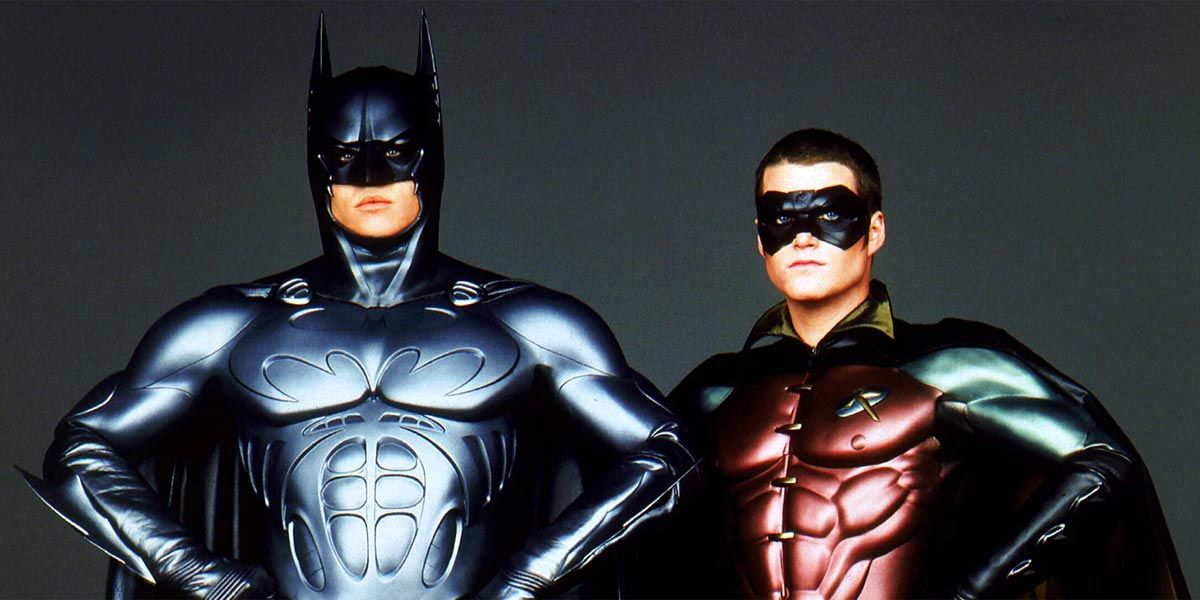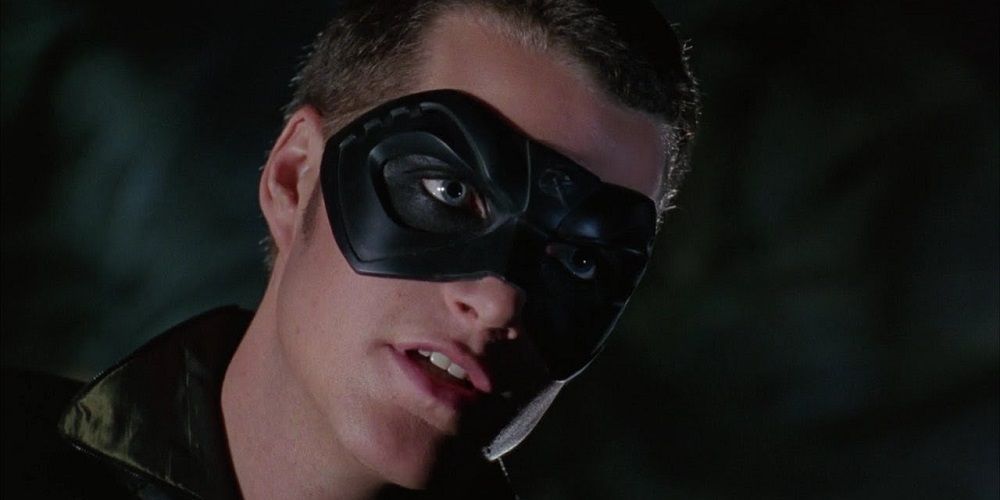As we enter 2020, we also near the 25th birthday of director Joel Schumacher's 1995 DC film Batman Forever. Ever since its initial release a quarter-century ago, Batman Forever has proven to be a controversial film among Batman fans.
While it's certainly not the worst on-screen adaptation of the character, the film drew criticism for forgoing many of the darker elements Tim Burton utilized in his own Batman duology, opting instead for a more marketable, kid-friendly approach. And, fair enough, the film was a bit too hammy for its own good at times, as were some of its key characters like Jim Carrey's Riddler and Tommy Lee Jones' Two-Face. What's more, Val Kilmer's Batman didn't quite captivate audiences the same way Michael Keaton's version of the Dark Knight had just a few years prior. Plus, the movie really could have done more with Nicole Kidman's Chase Meridian. For all of its shortcomings, however, there is one character Batman Forever got absolutely right: Chris O'Donnell's Robin.
Unfortunately, perception of O'Donnell's version of Dick Grayson has been skewed by Batman Forever's 1997 sequel, Batman & Robin -- which relegated the character to little more than a petulant pun factory. However, to judge O'Donnell's Boy Wonder purely by Batman & Robin does a massive disservice to all the genuinely great character work present in Batman Forever. In fact, the 1995 film's Robin can easily be seen as the definitive live-action version of the character.
First and foremost, Dick Grayson's origin story and transformation into Batman's sidekick are handled wonderfully. Batman fans had already gotten an excellent retelling of Robin's origin two years prior in Batman: The Animated Series. Batman Forever had a lot to live up to in that respect but expertly differentiates itself from the television series by portraying Dick as a young man, rather than a child.
The shift in Dick's age allows Batman Forever to hit the familiar story beats DC fans have come to expect from Robin's origin, while also telling the story in a slightly different way than The Animated Series did. Take, for instance, the scene in which he commandeers the Batmobile and ventures out into Gotham looking for trouble. He's clearly hurt and trying to vent his frustrations in unhealthy, but believable ways. His anger and grief are not only palpable but feel genuine.
A younger Robin attempting this stunt would have been more humorous than emotional, given he probably wouldn't be able to see over the steering wheel. In this context, it not only works but also remains consistent with what the character is supposed to be feeling at this stage in his life: a passionate but misguided quest for judgment. And that's where Batman comes in.
Batman Forever tweaks the circumstances of Robin's origin story a bit, making it so it was actually Two-Face who was responsible for the death of his family. This is another adjustment to Robin's origin that actually works really well. Lest we forget -- as different as it is from its predecessors -- Batman Forever is still technically a sequel to Tim Burton's Batman and Batman Returns. As such, it takes place in a reality in which the Joker, was the one who killed Bruce Wayne's parents. Giving Dick a similar dynamic with Two-Face seemed like a necessary decision, as it not only gave Dick a well-defined motivation but also strengthened the parallels and the ultimate bond between him and his new adoptive father, Bruce.
In the end, that is why Batman Forever can legitimately be seen as the perfect origin movie for Robin. It largely takes its cues from what Tim Burton did with Batman's origin, while also allowing Dick Grayson's personality and charisma to stand on their own. While the other tweaks Schumacher brought to the franchise were hit and miss, it seems he knew exactly what to change and what to keep the same in respect to Robin -- resulting in a strong, fully-realized version of the character by the time the credits rolled.
In retrospect, Batman Forever's handling of Robin's origin story was everything it needed to be. In addition to being the first mainstream depiction of Robin since Burt Ward's 1960s version, it told the story of loss and redemption DC fans new and love, while also providing new layers to Dick Grayson's grieving process and his ultimate rise as the Boy Wonder. It highlighted his angst but also wasn't afraid to let him embrace his fun-loving side and a joke every now and then. Batman & Robin went overboard with the attempts at humor. Meanwhile, DC Universe's Titans seems to have overcorrected and made the character of Robin overly solemn. But they really did strike the perfect balance that first time.
In fact, you have to wonder how different the general consensus regarding O'Donnell's Robin would have been had Batman Forever been billed as a Robin origin film, rather than a Batman sequel. Given that Dick Grayson was the film's strongest character, there's an argument to be made that viewing Batman himself as more of a supporting player changes the conversation regarding the film's creative success immensely.
On that note, here's a parting challenge. The next time you find yourself watching Batman Forever, try to do two things. One, forget Batman & Robin exists and try to view Schumacher's first film as a standalone product. Two, try to convince yourself you are watching a Robin movie, rather than a Batman one. If you weren't the biggest fan of the film the first time around, this might just change your perspective on it -- at least a little bit.



